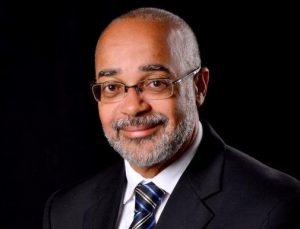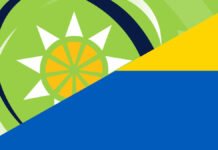 We celebrate, by the Grace of God, 36 years since the formation of the Organisation of Eastern Caribbean States. Even as we give thanks for the many blessings and accomplishments so must we equally acknowledge the several shortcomings and weaknesses of our effort to date.
We celebrate, by the Grace of God, 36 years since the formation of the Organisation of Eastern Caribbean States. Even as we give thanks for the many blessings and accomplishments so must we equally acknowledge the several shortcomings and weaknesses of our effort to date.
The aspiration to regional integration has been a long historical struggle with shining moments of solidarity and with disappointing examples of fracture. Too often our best emerges only when we are faced with the worst and we are yet to understand that while adversity might provoke the spirit of resistance; it is the will to excel that will fuel the spirit of resilience.
Let us take pride in the accomplishments that we have achieved; some of which have almost invisibly improved our daily lives.
Let us take a minute to itemise some of these achievements:
- We now have in place the free movement of people in which citizens of the Member States (with the exception of Martinique which is part of the French state) can travel freely within the OECS. We can move freely for short term or long term, for work or for pleasure with nothing more required than a government issued picture ID.
- The EC dollar, which is the currency of the OECS, has been and continues to be a strong currency holding a fixed exchange rate against the US dollar. In bigger and richer Caribbean sister countries, national currencies have fluctuated and mainly been on a downward spiral against the US dollar. This is an achievement that we take easily for granted but those of us who have travelled to other parts of the Caribbean where the currency has been floating freely, would appreciate what the stability of our currency means to one’s personal income and one’s ability to feed, clothe and care for one’s family.
- We can drive freely in any OECS Member State using our national driver’s license. You do not need to get a Grenada driver’s license if you have one from St Vincent or Antigua or Dominica or St. Kitts to drive legally in Grenada, for example. But there is a bigger aspiration…. Imagine for a moment the day when you can drive your vehicle right on to a regional ferry, travel to the next island for the day, and drive off with your vehicle in that port.
- The OECS countries buy medicines together and we benefit from that pooled procurement. 840 different medicinal products are bought each year and we save about $5 million from buying in bulk. You may not realise it but 90% or 9 out of every 10 medicines that are prescribed in public health facilities are provided through this scheme called the Pharmaceutical Procurement Service. 550 of these medicines are listed by the World Health Organization as essential medicines that help us to live productive lives even if we are affected by illnesses such as high blood pressure, diabetes, AIDS and so on.
- In education the Ministries of Education have been working more closely than ever before to implement the new education reform strategy. This involves a process of revamping and taking a harmonised approach with an initial focus on literacy and early learning to give our children a good head start. Our focus is on improving learning in the education system.
- What we call functional cooperation has been expanded and deepened, especially with the entry of Martinique, in areas which directly impact people to people contact. In health we are expanding access to specialised health care, cooperation in the control of infectious diseases etc. In tourism, community tourism is widening and travel between the islands and the French territories has increased with greater involvement of our French cousins in festivals, day shopping and short stay vacations.
- The OECS continues to play a leading role internationally in the struggle against climate change. With the assistance of USAID and other development partners, significant work has been done in most Member States in the environmental sector. We continue to work together on land stabilisation and water harvesting projects to keep homes, communities and infrastructure safe from the effects of climate change.
- In agriculture, there is the beginning of a quiet revolution. Over the past year, we have put in place arrangements that involve three refrigerated boats traversing the OECS and the wider Caribbean, exporting a range of fruit and vegetables including squash, dasheen, and livestock within the OECS and between the OECS and the Virgin Islands and Trinidad & Tobago. Getting to that stage has involved progressively improving our packaging, raising our phytosanitary standards, identifying the greatest value produce needed in the market and forging new links with purchasers in Trinidad, Martinique, and lately the United States and Canada.
In spite of these accomplishments, there are still issues which continue to annoy the average citizen. Ultimately for regional integration to work, Caribbean people must have confidence in the process and appreciate the ways in which it impacts their daily lives for the better. Notwithstanding the progress that we have made, there are several things that continue to frustrate the pace of integration. We recognise these irritants and impediments and continue to work with the relevant governmental bodies in Member States to address them. These impediments include:
- Bureaucratic requirements that make the free movement of people less easy than it should be – for example the requirement of completing lengthy immigration paper forms on arrival in each Member State. We would have gotten there when travelling from country to country is as hassle free as travelling between towns within any Member State.
- The many frustrations experienced on a daily basis with mobile and broadband. In today’s global economy, these information technologies are the backbone of the digital economy. They are no longer luxuries but necessities for survival and progress. In many advanced countries, access to quality internet service is now deemed a human right! We have been working closely with ECTEL to strengthen the regulatory authority to ensure that roaming is removed between OECS Member States; that number portability or the right to keep your number as a personal number no matter which provider you switch to is established; that there is no interference with the subscriber’s right to use services such as skype, whatsapp, or any over the top services that enable people to make free internet calls and communicate easily with family and friends overseas or which reduces a business’ communications cost and that the level and quality of service that you are paying for is what you are consistently getting.
- The high cost of travel within the region, and limited choices continue to be a source of frustration for the people of our region, and this constitutes the single biggest obstacle to OECS integration as it discourages the movement of people, goods and services. Free movement is not only for the benefit of the public, but for the private sector as well, as goods and services are involved. The OECS private sector needs to step up to the plate and help relieve OECS governments of some of the burdens associated with the provision of regional transport. Air transportation across the region with our challenges of size and population cannot be solely a commercial proposition but is also a public good and a social necessity.
As we enter the 36th year of aspiration towards a single social and economic space, the acceleration of effort is going to be our primary objective. There are many things that we need to do which are best done together with the wider fraternity of CARICOM and we will be seeking to forge closer and deeper collaboration to achieve them.
In the immediate future, we will see some key initiatives brought to completion. These include:
- the OECS Competition Commission designed to protect consumer rights and guard against the negative impact of monopolies;
- the mapping of health infrastructure across the OECS to create an inventory of health facilities and capacity in the OECS space so that Centres of Excellence for specialist care can be established;
- Significant engagement with the youth that will culminate in the OECS Youth Strategy that will give prominence to youth development initiatives. Only three weeks ago we identified – from a field of over 200 applicants – the 30 under 30 Entrepreneurs. Thirty young persons under 30 years of age who are engaged in amazing entrepreneurial ventures. This group will receive special attention and support from our Business Development Unit to realise their fullest potential.
- Work continues on the modernisation of legislation pertaining to social justice, juvenile justice, child protection to strengthen the most vulnerable sectors of our society.
So what then is our responsibility as citizens of our national spaces and as members of the OECS?
Know your rights – visit our webpage www.oecs.org and sign up to receive updates on developments in real time; join us on Facebook and Twitter for updates. Our communications media is geared to respond to the frequently asked questions about how OECS integration works.
Educate your fellow citizens; be a champion in your own community; participate fully in the integration process by offering solutions to the gaps that you experience. We are listening and we want you to join this journey.





